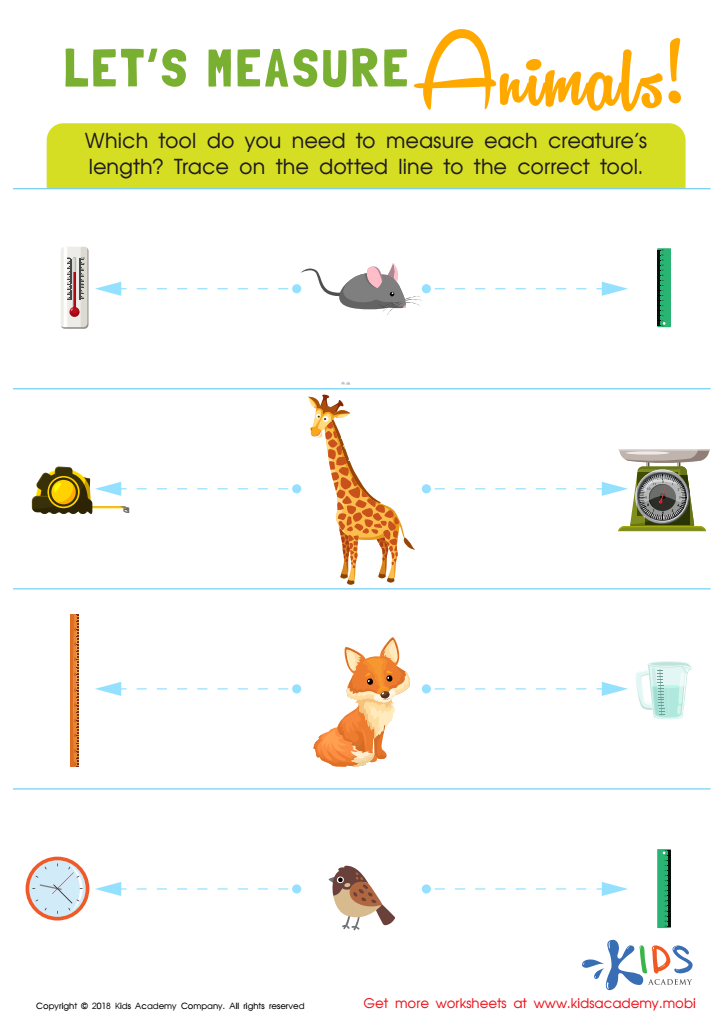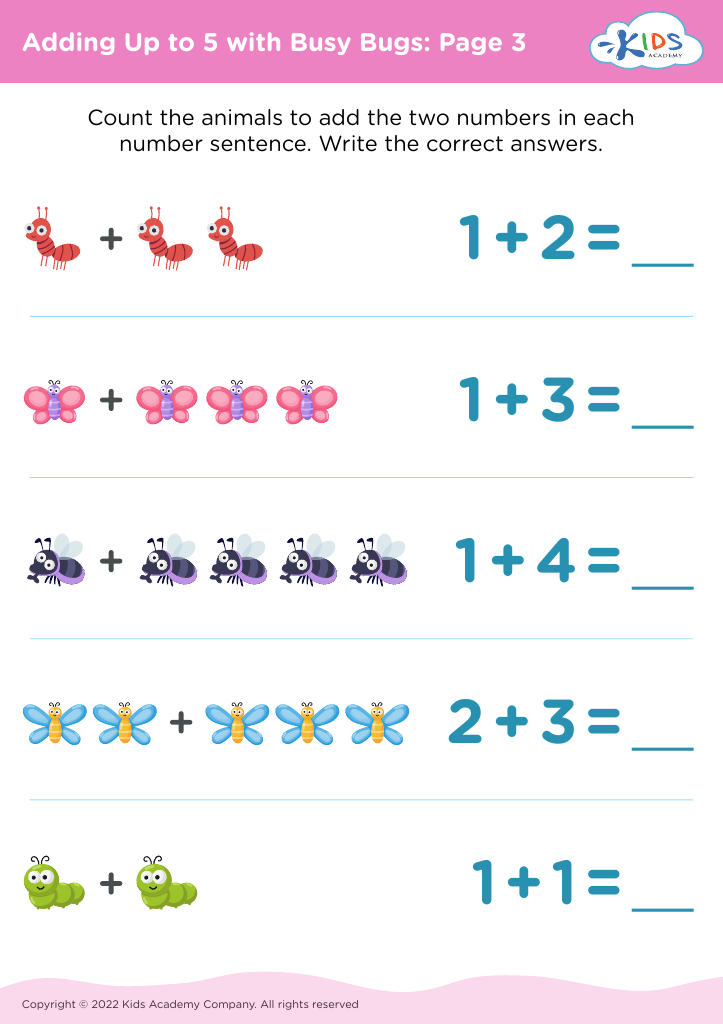Improving fine motor skills Worksheets for Ages 5-7
3 filtered results
-
From - To
Discover engaging worksheets designed to enhance fine motor skills for children ages 5-7! Our specially crafted resources encourage children to develop essential abilities through fun activities like tracing, cutting, and coloring. These worksheets not only foster better hand-eye coordination but also build confidence as kids master new skills. Parents and educators can easily access a variety of creative tasks that fit seamlessly into home or classroom learning. Whether your child is beginning their educational journey or needs a fun refresher, our fine motor skills worksheets will provide the perfect tools to help them thrive. Explore our collection and watch your child flourish!


Let's Measure Animals! Worksheet
Improving fine motor skills in children ages 5-7 is crucial for their overall development and future success. At this age, children are refining the ability to coordinate small muscle movements, particularly in their hands and fingers, which significantly impacts their capability to perform everyday tasks such as writing, drawing, buttoning shirts, and using utensils. These skills provide a foundation for their later academic achievements, especially in areas like literacy and math.
Moreover, fine motor skills are closely linked to cognitive development. Engaging in activities that enhance these skills fosters concentration, memory, and spatial awareness, further supporting learning. Parents and teachers should recognize that promoting fine motor activities—such as cutting, threading beads, and coloring—not only nurtures dexterity but also boosts self-confidence as children accomplish tasks independently.
Additionally, strong fine motor skills can ease frustration and increase enjoyment during activities both at school and at home. To ensure that children thrive, educators and caregivers should prioritize fine motor development as an integral part of early childhood education. Investing time in these areas helps children prepare for more complex tasks in life, encouraging lifelong skills that are essential for academic and personal achievement.


 Assign to My Students
Assign to My Students




.jpg)











